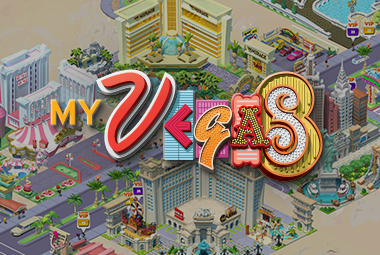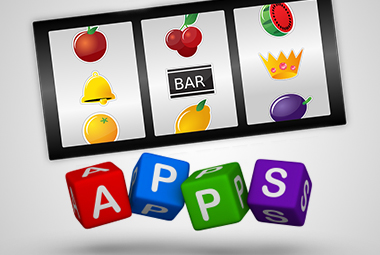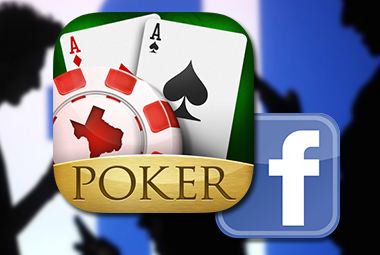Gamblification Has No Real Value...Usually

While you may not be familiar with the term, “Gamblification,” you are likely familiar with some of the sites/apps that the term can be applied to. Zynga Poker is one good example of an app that invokes the concept of gamblification, which is simply applying gambling elements to a game that is fundamentally not a gambling game. The games themselves might even be games materially identical to those found in casinos, but the player is not gambling any money with the possibility of winning money.
In most cases, games that invoke gamblification are not ones in which any items of real world value can be purchased or won with the virtual currency. The reason why is because such games would then fall under laws either related directly to gambling, or may fall under the purview of other sweepstakes laws, depending on the state. For that reason, while the virtual currency used in such games might be able to be purchased with real world money, items with real world value (and certainly not real world money) can generally not be won.
There are social media games, such as MyVegas by PlayStudios, in which real world items can be won. MyVegas gives players the ability to buy chips which, in one fashion or another, can be used to generate loyalty points (LP’s) by playing the games on one of the MyVegas apps. (They have a mobile slots, mobile Blackjack and Facebook app with BJ and slots) However, the real world comps offered by using one’s MyVegas loyalty points can also be won without ever purchasing any chips off of the platform.
Sites that offer the ability to use in game currency to purchase anything of real world value would generally fall under Sweepstakes laws, and as a result, will be restricted to individuals who have attained the age of majority. In fact, MyVegas offers some rewards that a player must be 21 years old to take advantage of, (and have an MLIFE account) such as free play, so even though they allow people as young as eighteen to play, 18-20 year olds cannot necessarily enjoy the full gamut of what LP’s would otherwise enable them to purchase.
In all cases of gamblification sites, individuals must be at least eighteen years of age (contract law) to make any purchases of in-game virtual currency. However, the sites do everything they can in their Terms & Conditions to divest themselves of any responsibility if a minor does make a credit card purchase on the sites. Of course, the sites (mostly) do very little in terms of meaningful age verification to prevent such purchases.
However, for those sites that do allow the exchange of one form of virtual currency or another for the purchase of items of real world value, they certainly require a positive form of age verification when it comes time for the player to collect. Naturally, this is not done out of any great sense of responsibility, otherwise any such age verification would take place prior to any actual purchases being made by the individual in question.

MyVegas is something of an outlier when it comes to sites that utilize the concept of gamblification, and that is because PlayStudios in conjunction with MGM Resorts actually offer positive value to the players via the app. The majority of such sites/apps do not offer any positive value as no items with any real world value can be won/purchased as a result of game play or with virtual currency. The only thing that can be won with virtual currency is more virtual currency.
Many Facebook Texas Hold ‘Em apps, such as Zynga Poker, are excellent examples of such games. In the case of Zynga Poker, the game chips can never be exchanged for anything of real world value, although, there are certain tournaments that can be entered with the possibility of winning real world prizes if one wins or places well in the tournament. Of course, in order to actually win the prize, one must be the age of majority or twenty-one, depending on the nature of the prize.
Because there are no real world items even loosely linked to the virtual currency, apps such as Zynga Poker are able to skirt sweepstakes laws, and as a result, offer their services to individuals as young as thirteen years old. The fact that they allow thirteen year olds to play on their poker app is clearly stated in their terms and conditions. This is also the case with several other social poker apps as well as some other casino game apps that an individual may easily access.
Many gamblification based games, in fact, operate with the same psychological goal that the design of gambling games themselves for real money provide, and that is the stimulation of the rewards centers of the brain. In fact, many of the MyVegas slots games are materially identical to the games that can be found in actual physical casinos whereas Zynga Poker operates almost entirely no differently than the poker at a Play for Money gambling website. The only real difference is that the player of the gamblification game cannot win any real money, but he or she can certainly spend it.
The games try to make up for the absence of real money to be won in a few different ways. The first way is that they offer free virtual currency to be used for playing periodically, usually a larger amount daily and then smaller amounts on a shorter, but more frequent, basis. The idea behind offering these free virtual chips is to get the player actually playing the games themselves in order to attempt to get them hooked.

Another psychological tactic used by gamblification games is to try to get the player enthralled with the game by way of the use of large numbers. In MyVegas, for example, players can make spins in the hundreds of thousands of chips (upon reaching a high enough level) and can win in the millions or tens of millions on a given spin. While routinely winning these sorts of sums, or even betting them, is comically ridiculous unless you happen to be filthy rich the big numbers are used to try to stimulate those reward centers and compensate for the fact that the player isn’t really winning anything. Again, MyVegas is an exception, but in most games, the player is not winning anything of any tangible real world value.
Another ploy that the games offer is that of, “Levelling up,” which works in a very similar way as it does with other, “Pay to win,” game apps. The first several levels that ba player achieves are relatively easy to get, even without making a purchase, but they become much harder and necessitate prolonged game play. With the, “Play-to-Win,” apps, players usually need to purchase items and power-ups in order to make the quests, or equivalent, easier to beat. With the gamblification games, the player needs to purchase additional virtual currency in order to level up more quickly.
When it comes to these apps, every purchase is essentially a bet that the player cannot win, or better yet, throwing money away at an Expected Value of zero. The only way that the money can even be said to have been worth anything is if the player believes that the act of playing itself generated enough value to justify the purchase of the in-game currency. In many cases, the player will eventually lose all of the virtual currency yet again and wonder why the Hell he bought it in the first place.
The major difference between these types of games and outright casino websites is that it is arguably easier for a minor to access these games. In most cases, the age verification requirements for these games involve nothing more than inputting a birthday or checking a dialog box that says you are old enough to play. The companies that offer these games have very little incentive to actually conduct a meaningful age verification, with the only exception being when the individual in question comes to collect his/her prize, at least, for the companies that offer something of actual real world value.
In most cases, again, nothing of real world value is offered and the virtual currency can only win more virtual currency. The need to do a meaningful age verification invoking the presenting of some sort of photo ID will never present itself and the website offering the games will have deniability the entire time. Of course, that will not necessarily stop the credit card company from reversing a disputed charge on the premise that one’s kid was playing the game, but the virtual currency cost the company offering the game virtually nothing anyway. Besides that, many people would not request a chargeback on their credit card for this reason.

The primary reason that most children would not play at actual online casinos is that they have no means by which to collect their winnings. Even if they access a parent’s credit card information, they have no way of getting any monies won into their hands rather than into the hands of their parents. However, with the gamblification games, there is no real world currency to be won in the first place as the purchases are just being made for ther ability to continue playing.
These companies don’t even need to aggressively market themselves as many individuals on Facebook share posts of, ‘Big Wins,’ and send invites to the games to their friends. When that happens, the marketing for any such gamblification apps gets done through them via the Internet equivalent of word-of-mouth. However, many of these companies, such as Zynga, do advertise by way of Facebook banners and click-links on other sites, as well.
These companies will often offer, “Deals,” on their virtual chips to generate the idea of value in the mind of the person purchasing the chips. It is important to remember that, with exception to the companies who do eventually offer something with real world value as a result of the use of the virtual currency, that the chips (regardless of amount) cost them very little to sell to the player. The deals themselves, while some are better than others, are nothing more than an illusion.
The deals are such an illusion, in fact, that the best of the deals are targeted to would-be first time buyers of the virtual currency to get them over the hurdle of spending real world dollars and cents on the virtual currency. Companies such as PlayStudios might even offer real world incentives to make chip purchases of a certain minimum amount. In the case of MyVegas, up to three rewards may be redeemed in a thirty day period, but if one satisfies a certain minimum purchase requirement ($50, I believe) within the last ninety days, then that person may redeem up to five real world awards within a thirty day period.
Most of the time, though, particularly on the sites that offer absolutely nothing of real world value, these deals are illusory and give the player nothing more than the ability to play a little longer than he otherwise would have.
Another aspect of the deals is that the same deal is not necessarily available for everybody all the time. After not making a purchase in a certain amount of time, the game in question will occasionally offer a, “Better,” deal for the person to make a new purchase of the virtual currency. Additionally, if an individual stops playing the game altogether, then after a certain period of time (especially if the person has previously made the purchase) the game will offer the individual a large amount of chips all at once to compel them to play again.
While all of this seems innocent enough, and while the percentage of individuals who make a purchase (and the average total spend, per person) is somewhat low, it is important to remember that it actually costs very little to provide these games. Furthermore, every single purchase that is made is basically found money for the companies that own the games because the games themselves (and the virtual currency) cost almost nothing to provide on a per player basis. In that sense, one player making a somewhat small purchase subsidizes all of the other players who play only for free for a very long time.
While all of these aspects are fine for adults, it is regrettable that kids can so easily access their parents’ credit card information in order to make purchases on these apps. Much like the purchases of the gambling skins that we discussed last week, it is not always immediately apparent (for those who even notice in the first place) what the purchase was used for.

The answer to what should be done about it is pretty simple, but it won’t happen unless the states regulate apps in such a way as to force the hands of the companies. The states need to make it so that the photo identification of the person to whom the method of payment belongs must be transmitted electronically to the company before an initial purchase can be made. This method is obviously not foolproof, as a kid can potentially swipe the ID of a parent, as well, but it is at least an extra layer of security to ensure that minors are not making a purchase related (in any way) to a gambling-based game.
When it comes to actually playing the games without the need to make a purchase, I’m actually a little bit on the fence on that question. If nothing else, I think playing such games (as long as it is 100% free) will at least teach minors that the house always wins all of your chips in the end if you are playing a negative expectation game. At the same time, if the states Legislated such that individuals have to be at least eighteen to play gambling-themed games at all, I would not be entirely opposed to that Legislation.
The bottom line is that such games are likely not going to go anywhere for sometime, but it is important for parents to be aware of them and to protect both their children and themselves. Parents can do this by monitoring what apps are on the devices of their children, setting up parental locks, keeping their credit card and bank information protected and simply paying attention to what their kids are doing. A parent can also explain the nature of the games in question to their kids in order to ensure that the kids do not make any such purchases on the apps.
When it comes to adults, if adults find value in making purchases in order to extend their length of play on a given game, while I do not think there is any value in that, I do not fault those who do. I personally think it is a stupid purchase, but a non-drinker thinks it is stupid for me to buy a bottle of Jim Beam, so that’s just a matter of perspective. I do think it is important to protect the children, though and keep them from spending money on gambling-related games.
Comments
Zero percent payback is how I term these things. Understandable to some degree, but not so much when real casinos offer such a thing. It's not exactly Pac Man.
ONM,
That's 100% true!
"If nothing else, I think playing such games (as long as it is 100% free) will at least teach minors that the house always wins all of your chips in the end if you are playing a negative expectation game."
My problem with that statement is that the free games don't always have a negative expectation. It may give rise to the player expecting real world for money games to behave the same way.
That's a fair point, but I would assume most of the games for which one pays for virtual currency would have -EV. I could see where the games paid for via ad revenues only would be +EV.
link removed by admin.
Above link doesn't work, but it's a spammy advertisement for Slotomania that claims a woman won a progressive jackpot at slotomania with free spins. Pure fraud.
I'll post in miscellaneous discussion.



